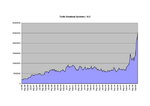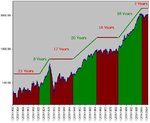Trading is not the same as gambling... a dumbass can make money gambling on a fluke, but to be a profitable trader long-term it's not a one- or two-time thing... you actually have to have a tested strategy and execute it well. In short, you gotta know what you're doing... Definitely this is much more serious than gambling.
A dumbass can just as easily make money trading from luck.. Your description of trading is no different than gambling. I think you're in denial



